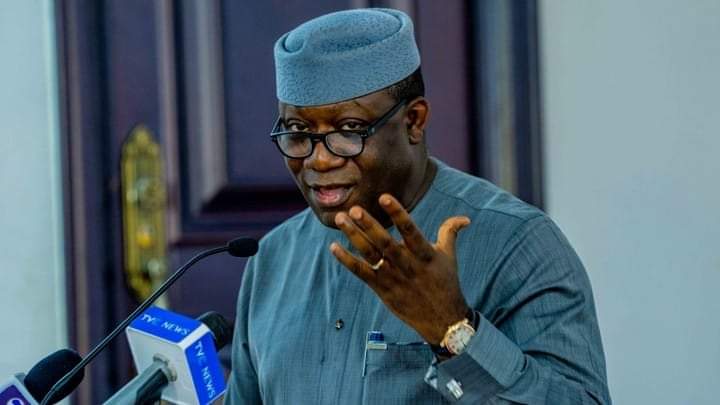Dr. Kayode Fayemi, the former governor of Ekiti State, recently asserted that the 2012 protests against the removal of fuel subsidy during the Goodluck Jonathan administration were driven primarily by political motives. He made this declaration while delivering a keynote address at a national dialogue in Abuja, commemorating the 60th birthday of Professor Udenta Udenta, the founding National Secretary of Alliance for Democracy (AD).
Professor Udenta Udenta is also a Fellow of the Abuja School of Social and Political Thought. The event was attended by notable figures such as former President Goodluck Jonathan, former Minister of Education Oby Ezekwesili, and former Minister of Aviation Osita Chidoka, among others.
On January 1, 2012, President Goodluck Jonathan announced the removal of fuel subsidy, resulting in a significant increase in the pump price of petrol from N65 per litre to N141. This decision ignited widespread protests known as ‘Occupy Nigeria’ across major cities in the country. Eventually, after over a week of protests, the price was adjusted to N97, and it was further reduced to N87 in 2015.
President Jonathan faced severe criticism over the fuel price adjustment, particularly from leaders of the defunct Action Congress of Nigeria (ACN), many of whom are now affiliated with the All Progressives Congress (APC). Other opposition parties, including the All Nigeria Peoples Party (ANPP) and the All Progressive Grand Alliance (APGA), also protested against the plan.
Dr. Fayemi emphasized the need for proportional representation in Nigerian politics as a solution to the nation’s challenges. He suggested that election spoils should be shared among contestants to promote unity and fairness.
Furthermore, Dr. Fayemi mentioned that the last significant period of economic development in Nigeria was during Jonathan’s administration. He cited former President Olusegun Obasanjo’s recent interview, where Obasanjo advocated for a reevaluation of Nigeria’s liberal democracy, expressing agreement with the need for alternative politics that promote proportional representation.
Dr. Fayemi acknowledged that all political parties in the country, including the PDP, APC, and Labour Party, had agreed in their manifestos that subsidy must be removed. However, he emphasized the importance of ensuring that everyone becomes a crucial stakeholder in decision-making processes, suggesting that the manifestos of these parties should be reviewed and representatives selected accordingly.
